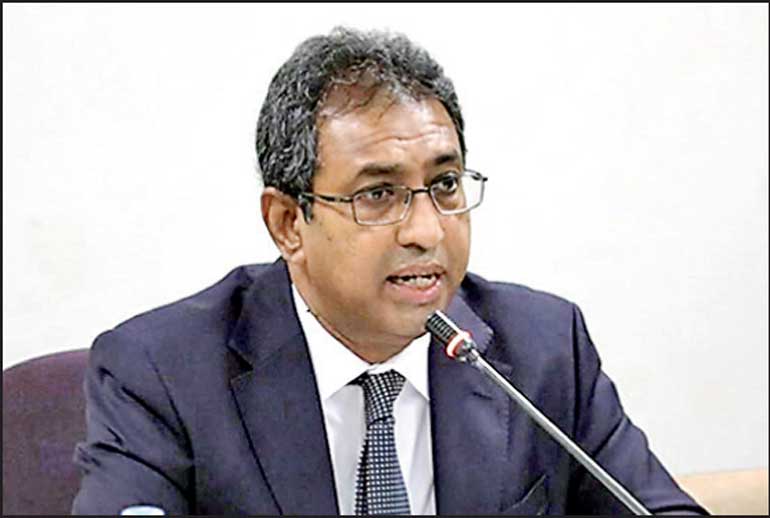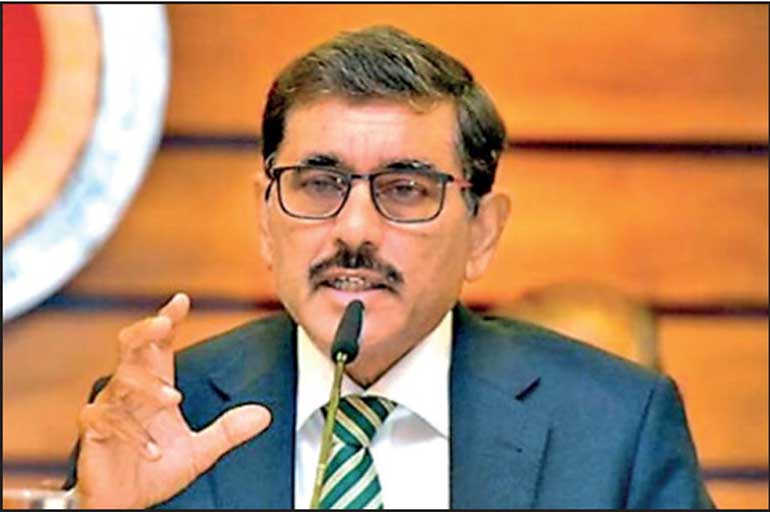Wednesday Feb 25, 2026
Wednesday Feb 25, 2026
Thursday, 21 March 2024 00:00 - - {{hitsCtrl.values.hits}}

CoPF Chairman
Dr. Harsha de Silva

Central Bank Governor
Dr. Nandalal Weerasinghe
The Committee on Public Finance (CoPF) yesterday recommended the Central Bank (CBSL) postpone the salary increase till an independent committee appointed by the Finance Minister submits a comprehensive review within four weeks.
CoPF Chairman Dr. Harsha de Silva submitting a report to Parliament on the recent CBSL salary hike acknowledged the independence granted to the CBSL in monetary policy under the new Act, underscoring the institution’s autonomy over its budget and staff salaries, whilst stressing that concerns were raised on accountability, transparency and fairness, particularly due to the ongoing economic crisis.
With a focus on preserving the autonomy of the CBSL, CoPF has proposed the establishment of an independent committee to address the matter. “Till a mutually agreed solution is reached, CoPF recommends CBSL postpone the salary increase,” he told the House.
Referencing a letter dated 16 March 2024, titled ‘CBSL 2024/26 Wage Revision’ CoPF recommends the independent committee, be formed with the agreement of the Finance Ministry, the CBSL Governor, and the Government.
The proposed committee is expected to comprise members from within and outside CBSL, as well as from the broader Government sector. CoPF insisted on the importance of prioritizing the expertise of relevant and specialized staff and ensuring industrially fair adjustments across all staff grades.
Citing the first footnote, Dr. de Silva highlighted the challenging economic circumstances faced by all citizens amidst the country’s economic downturn. Against the backdrop of the Government’s austerity measures, such as tax increases and rising living costs, he said the salary hike at CBSL has sparked public outrage.
“The CoPF strongly insists that the salary increase for all staff is unfair. CBSL is accountable to the Parliament regarding the salary increase,” he said.
Referring to the second footnote he disclosed that the PAYE has been integrated internally, while there is no transparent formula for distributing the different wage grades within the salary structure, including allowances such as transportation, service credits, medical benefits, etc., potentially leading to considerable inflation.
“More specifically, this suggests that while substantial wage hikes may be necessary for certain professions, incremental increases for junior staff across the board may not be justified. Following the recent salary adjustment at CBSL, the salary for a grade III assistant has risen to Rs. 223,763.83,” he said referring to the second footnote.
Dr. de Silva said during the inquiry conducted by the CoPF, the CBSL acknowledged the challenges posed by relatively high salaries for junior grades, attributing this to its past recruitment practices.
“Relatively high salaries for junior grades are an inherent practice. Between 2008 and 2010 two large batches of junior employees were recruited while the last recruitment was in 2013,” he quoted the minutes.
In addition, CoPF recommends a separate salary determination mechanism for professional staff, distinct from non-professional and other staff categories. It highlighted discrepancies in wage increases, stressing the need for a more discerning approach to salary adjustments.
Taking to ‘X’ Dr. de Silva noted that while the CBSL enjoys administrative financial autonomy, Clause 5 and 80 of the CBSL Act, along with a Supreme Court determination, hold the institution accountable to Parliament. In this context, the COPF has expressed reservations regarding the across-the-board salary increase for CBSL staff, deeming it unreasonable.
He added that the proposed independent committee would be tasked with addressing key aspects such as expertise and market rates. Additionally, the committee will explore the decoupling of salary determination methods for professional staff, non-professional staff, and minor staff within the CBSL.